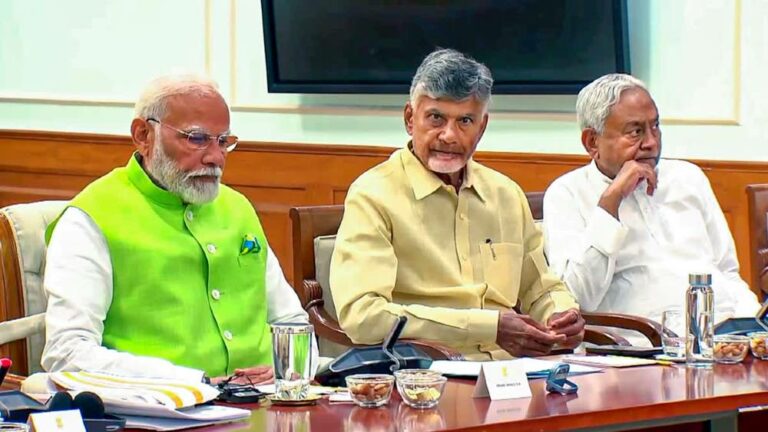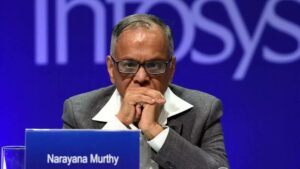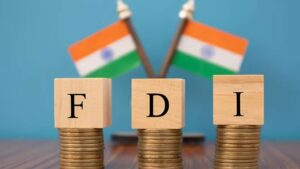Now the suspense is over. Narendra Damodardas Modi becomes Prime Minister for the third straight time and will lead the country for another 5 years. The only difference is, this time at the head of a coalition government. Atal Bihari Vajpayee ran coalitions during his prime ministership in 1996, 1998, and 1999. Modi on the other hand has always run majority governments, in Gujarat (2001 to 2014) and nationally for the last 10 years. He has assured his Cabinet colleagues that he would run a coalition government successfully and fulfil the coalition dharma.
The Bharatiya Janata Party won 240 Lok Sabha seats in the general election. Although it was a significant dip from its tally of 303 seats in 2019. To form the government it requires 272 seats in the 543-member Lower House of Parliament. That has been taken care of as with falling 32 seats short of the majority, it is still forming the government
With the support of its partners in the National Democratic Alliance. The final tally of the National Democratic Alliance parties is 292 seats. “NDA will form a strong, stable and growth-oriented government,” Narendra Modi announced. So get ready for another eventful and progressive five years.
Probably it was the first election when there was clear indication of foreign interference. One could sense the air, which was constantly being polluted by a set of highly funded group of self-proclaimed journalists, social media influencers and also a set of working as well as ex-journalists whose credentials were always under cloud. Those were the people who were powerful enough a decade back to make someone minister and in return walk in Rashtrapati Bhavan to collect their Padma awards unabashedly. Along with the opposition INDIA alliance they constantly mislead and conspired to sow mistrust about the country’s electoral processes.
It is high time these butchers of democracy are taken to task. Government should give no relief to them from prosecution. Same on the lines of corrupt politicians. The big election fraud has to be investigated and charges brought against those found guilty.
The consequences are also in multiples. Reeling under the pressure of the policies of the Modi 1.0 and 2.0 governments China is happy with the outcome of this election. Global Times in its headlined report ‘Modi declares victory amid setback to party’ says, “Modi’s ambition to compete with Chinese manufacturing and improve India’s business environment will be difficult to accomplish.”.
The reason – Indian policies weaned manufacturers away from China. The key reasons why manufacturers from across the world liked China were because of cheap labour and fast clearance from its single-party system. India added one more element in this list – young and skilled population. Can anyone differ from the fact that Modi government prioritised faster approvals with reduced red tape?
In 2022, India overtook Britain to become the world’s fifth-largest economy. Today also India is the fastest-growing large economy in the world and its GDP is expected to grow at 8 per cent in the financial year 2023-24. Some say it is just that India is reaping its demographic dividend. But this opportunity was always available. Why it took 7 decades to take benefit? The answer is, there was no effort from any of the governments. They never took economy seriously and industrialists were merely money bags to them. If we leave IT sector, which was a ‘growth by default’ we never saw entrepreneurship as a priority. There were skilled people, IIT and IIM graduates who wanted to do something on their own, but couldn’t muster enough courage.
Now we are assured that for the next 25 years India can reap the dividends of a younger population. This is the best time for India to capitalise with big bold moves. Good schools, higher-education institutes and high-quality skill-development centres are the need of the hour. It all needs a government that has the vision.
Naysayers are already on their job – a so-called London-based think tank Chatham House in a write-up headlined ‘India’s shock election result is a loss for Modi but a win for democracy’, says “the reduced mandate for the BJP is bound to have policy implications and from a policy perspective, the election outcome will likely impact India’s policymaking efficacy, making it more difficult to make progress on some of the more politically sensitive economic reforms, such as land acquisition and labour reforms.”
This is the story so far. But forget not, brighter days are ahead despite all.



















